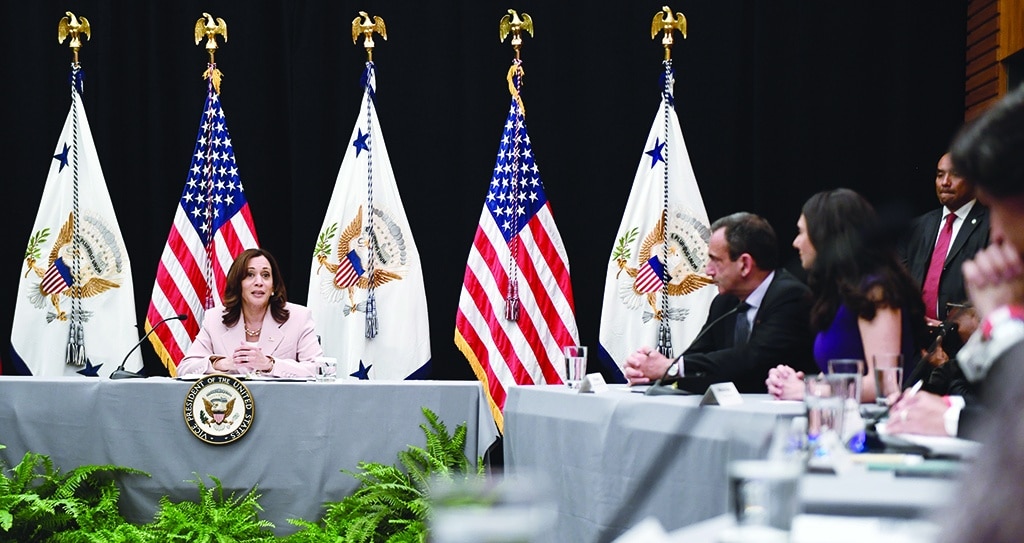LOS ANGELES: US President Joe Biden headed Wednesday to a Latin America summit on a mission to woo back the region as his administration pushed out pledges, including a plan to train half a million health workers. The long-awaited Summit of the Americas was marred by a boycott from Mexico's president, who was upset that Biden did not invite the leftist leaders of Cuba, Nicaragua and Venezuela on the grounds that they did not meet democratic standards.
The Biden administration insisted there were no hard feelings and moved forward on initiatives aimed at cementing ties across Latin America, where a rising China has increasingly made inroads despite the historic US influence. Hours before Biden was to arrive, his administration announced a new Americas Health Corps that will aim to improve the skills of 500,000 health workers across the region, building on the lessons from Covid-19, which hit the Western Hemisphere especially hard.
The health training will cost $100 million, although the United States will not contribute all of it and will seek to raise funds, including through the Pan American Health Organization. The pandemic "showed us the many cracks in our global health systems and underscored the importance of strong and resilient health systems for the entire population," a White House statement said.
China has stepped up its role in Latin America since the pandemic started, moving early to supply vaccines. Cuba has also long exported its state-employed doctors, a practice that so infuriated the previous administration of Donald Trump that he suspended funding for the Pan American Health Organization over alleged ties.
The health announcement comes a day after Vice President Kamala Harris detailed another $1.9 billion in commitments by businesses to invest in impoverished and violence-ravaged El Salvador, Guatemala and Honduras. The troubles in the so-called Northern Triangle, as well as Haiti, have generated a soaring number of migrants to the United States, setting off a domestic furor as Trump's Republican Party demands efforts to stop them. "We know the American people will benefit from stable and prosperous neighbors. And when we provide economic opportunity for people in Central America, we address an important driver of migration," Harris said.
'Nearshoring'
Mauricio Claver-Carone, the president of the Inter-American Development Bank (IADB), said that Latin America can increasingly be seen as a "sea of peace" for investors amid the global turbulence from Russia's invasion of Ukraine and rising risks associated with manufacturing juggernaut China.
The head of the IADB, which provides development funding in Latin America, said he saw a rise of "nearshoring," with businesses moving closer to markets rather than in China. Since the first Summit of the Americas in 1994, "each dollar that went to China was one dollar, one investment, one job less for Latin America and the Caribbean," he told AFP in an interview in Los Angeles.
In Latin America, "whether they are governments of the left or the right, they all want foreign investment, they all want nearshoring, they all want economic growth," he said. The first summit, held in Miami by Bill Clinton, aimed to create a vast free-trade zone that would span the hemisphere other than communist Cuba. Biden is holding only the second Summit of the Americas on US soil at a time that the political appetite for free trade has waned in Washington, with Trump rising to power in part by attacking trade liberalization as hurting workers.
But Biden has stood firm on another core principle of the Summit of the Americas-democracy-even as he considers going next month to Saudi Arabia, a critical oil supplier. Mexican President Andres Manuel Lopez Obrador insisted that all nations of the hemisphere should be included, a stance backed by several other regional leaders who nonetheless agreed to come. Biden is separately expected to meet President Jair Bolsonaro of Brazil, Latin America's most populous nation, despite rising fears that the Trump ally will not accept the legitimacy of upcoming elections. - AFP











